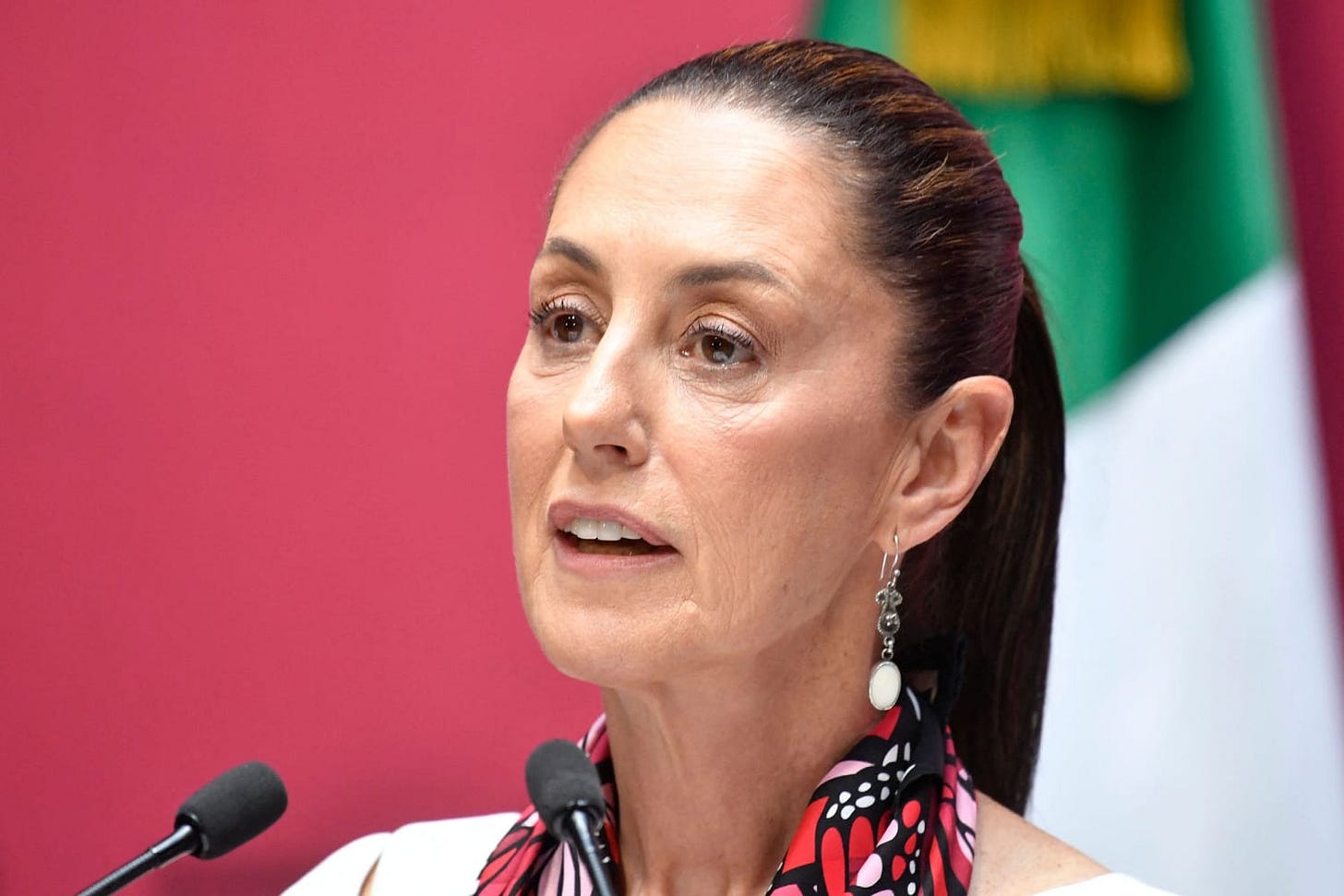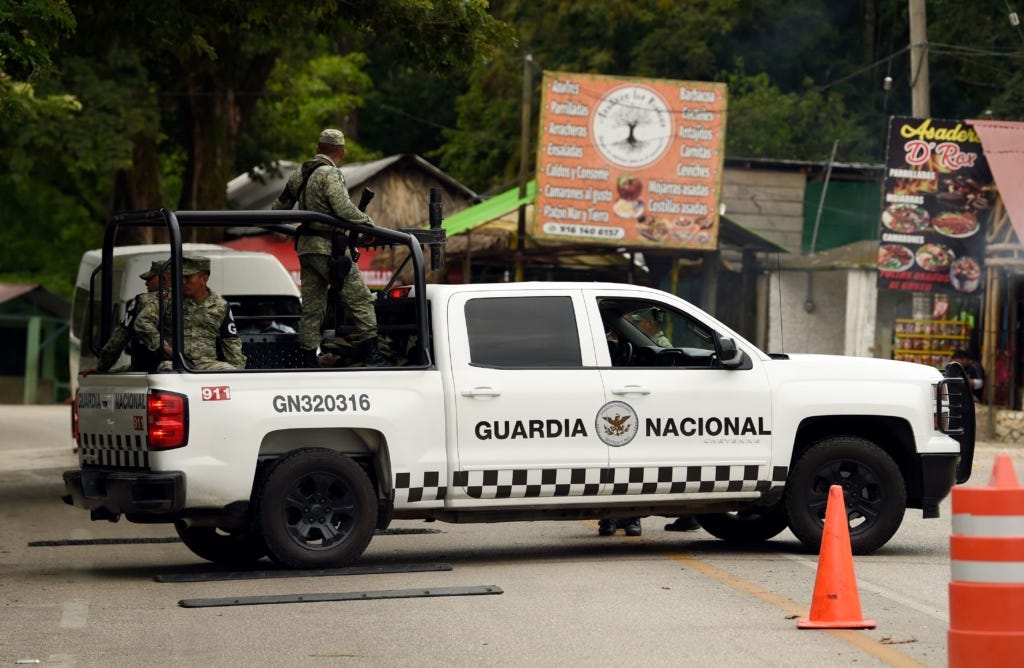Bulletin From The Borderlands
15 June 2024
Note from Lethal Minds:
Bulletin From The Borderlands is a joint project between Lethal Minds and some of the most talented OSINT analysts and independent journalists working today. Our goal is to provide you with a clear, accurate, and informative view of the world, free from censorship or bias. The Bulletin will bring you the facts, our analysis, and our evidence. We hope you find our work helps you better understand the complicated and increasingly volatile world in which we live.
Be informed, be prepared, be lethal.
The Bulletin Team:
Analyze Educate : Brodie Kirkpatrick (Analyze & Educate) is a Marine Corps infantry veteran. He is a graduate San Jose State University with a Bachelor’s Degree in Political Science. He runs Analyze & Educate, a podcast and associated social media pages discussing geopolitics, armed conflicts, news, and history. In his capacity with Lethal Minds he is the team lead for the Bulletin From the Borderlands, Americas Desk chief, and an editor.
The Expeditionary Intelligence Group : The Expeditionary Intelligence Group Instagram page is a project delivering flash news utilizing open-source intelligence combined with human asset contributions and geographic intelligence to provide the general public with objective bias-free global news that tells the whole story based on the facts and on-the-ground insights they feel are missing from a lot of mainstream news reporting.
The Defense Bulletin: Defense Bulletin is run by John M Larrier. As a civilian, I’ve closely followed strategic developments for close to a decade, but “launched” the Bulletin during the pullout in Afghanistan due to the extreme nature of the misinformation I saw my peers as well as others reading into. The lacuna that the general populace has about these now very prevalent subjects is the stated goal for Defense Bulletin
Robert “Bobby” Acuña is a graduate of Texas A&M University – Corpus Christi with both a BBA in Economics and a BA in Political Science. He was originally born in Subic Bay, Philippines but lived much of his life in Corpus Christi, Texas. He currently resides in Houston, Texas. Growing up in a military family, Robert developed a passion for politics as well as studying war history. Some of his earliest memories were watching World War II documentaries with his grandfather. This led him to his educational path in university. One of his favorite aspects of his collegiate career was political research. His most recent work was with The Modern Insurgent. He believes Bulletin On The Borderlands will help to fulfill that urge to understand and stay consistently aware of the geopolitical issues around the world. Outside of his interest in global affairs, Robert is an avid Brazilian Jiu Jitsu practitioner and rugby player.
ALCON S2: A veteran of the New Zealand military intelligence community, if it walks, talks, or crawls in Asia, ALCON S2 knows about it. Cole is the preeminent source of OSINT for the Oceania and South East Asia region.
Jillian Butler: A lifelong writer and San Diego native. She received her bachelor’s degree in English and History at the University of Ulster in Northern Ireland. Upon moving back to San Diego, she received her master’s in International Relations at the University of San Diego where she centered her research around jihadi terror. She is also a contributing writer for Pop Smoke Media, American Grit, The Modern Insurgent, and Lethal Minds Journal’s Bulletin from the Borderlands. In her free time, she can be found surfing, training jiu jitsu, or improving her craft of cooking the perfect ribeye.
Sponsors
The Bulletin is brought you to by PB Abbate.
As you likely know, Lethal Minds Journal shares common ancestry with Patrol Base Abbate, one of the most impactful veteran’s outreach organizations in America. One of the ways in which we connect is through a love of the written word, a belief in the power of good writing to help give a voice to people who need to be heard, and a desire to help service members and vets connect through self-expression.
In This Issue:
The Americas : Covered in this issue by Brodie Kirkpatrick (Analyze & Educate).
Mexico has elected a new presidential after a turbulent campaign season. The incoming president, a protege of the incumbent, is a historic choice for the country. However, there are serious questions regarding her ability to combat the issue at the top of everyone’s mind: crime.
Europe: Covered in this issue by Brodie Kirkpatrick (Analyze & Educate) and Jillian Butler.
New policy changes from the Biden administration expands Ukraine’s ability to use U.S-made weapons against Russian forces. With these changes, Russian border regions have been opened to precision fires and a controversial unit has been brought back into the spotlight.
East Asia and Oceania: Covered in this issue by John M. Larrier (Defense Bulletin).
As Chinese aggression in the Indo-Pacific increases, the Quad has increased its measures to combat said aggression. The framework turns twenty this month amidst a significant increase in tensions throughout the Indo-Pacific.
Central Asia and the Middle East: Covered in this issue by Jillian Butler.
In spite of the Doha Agreement, Al-Qaeda continues to operate in Afghanistan. The group is now inviting supporters to train in the country for operations against the West and Israel. In Iran, the country prepares to hold presidential elections next year after the death of President Ebrahim Raisi.
Africa: Covered in this issue by Expeditionary Intelligence and Jillian Butler.
In northern Africa, a vital border crossing between Tunisia and Libya is set to be reopened for the first time in three months. In the Sahel, top Russian officials travel to the region in order to foster good relations. This comes at a time when Russia and China are making major moves in the region to counter the West. Throughout the continent, Russian recruitment of Africans for the war effort in Ukraine continues. A new intelligence report from the UK’s Ministry of Defense details these efforts.
The Highlight:”The Quad” Alliance Stays Strong Amid Heightened Regional Tensions
The Americas
Brodie Kirkpatrick
Mexico Elects 2024
Mexico held its general election on June 2nd, with Mexicans at home and abroad voting for federal, state, and local offices. The country holds general elections every six years, corresponding with the term lengths of the president and federal senators. In a country, and an election cycle, marred by violence and crime, outside observers are standing by to see how the new president will tackle these issues.
Presidential Race
This year’s presidential election saw the least amount of candidates in any election since Mexico’s transition to democracy in 2000. Three candidates competed in the election, which was seen as a referendum on the incumbent, President Andres Manuel Lopez Obrador (AMLO). When he won the election for his party, Morena, in 2018, the country’s established parties were shocked that a party only seven years old could take power. AMLO fashioned Morena as an insurgent party taking on the establishment.
This month’s election was remarkable in that the three established parties at the federal level banded together to form the Strength and Heart for Mexico coalition (Fuerza y Coraón por México). The right-wing National Action Party (PAN), social democratic former powerhouse Institutional Revolutionary Party (PRI), and left-wing Party of the Democratic Revolution (PRD) have all competed with each other for power in the past. The coalition chose former Senator Xóchitl Gálvez of the PRD as their candidate, a shocking move that was indicative of the perceived threat Morena posed to the establishment.
Seeing as the President of Mexico is only allowed one term and cannot run for re-election, AMLO’s National Regeneration Movement (Morena) chose Claudia Sheinbaum, the former Mayor of Mexico City (2018-2023) to run for president in his place. Traditionally, serving as the Mayor of Mexico City is seen as a stepping stone to becoming president, giving Sheinbaum an advantage over Gálvez. Morena was joined by the left-wing Labor Party (PT) and environmentalist Ecologist Green Party of Mexico (PVE) to form the Let’s Keep Making History coalition (Sigamos Haciendo Historia).
The third candidate in the contest was Jorge Máynez of the Citizens’ Movement (MC), a progressive, socially liberal party. Máynez is a former congressman and staunch critic of AMLO. The MC was not joined by any other parties in a coalition and Máynez was seen as the least competitive in the race.
Despite Sheinbaum’s background as a U.S.-educated technocrat, her status as AMLO’s protege lended to her popularity. This popularity was shown on June 2nd, when she won an overwhelming victory over her two opponents. Sheinbaum won 60% of the vote, with Gálvez winning 27%, and Máynez winning 10%. With this victory, the former mayor will become Mexico’s first female and first Jewish president in October.
Who Is Claudia Sheinbaum?
Claudia Sheinbaum Pardo, 61, was born in Mexico City to two scientists, her mother a biologist, and her father a chemical engineer. She studied at the National Autonomous University of Mexico in the capital city, studying physics for her bachelor’s and energy engineering for her doctorate degree. While pursuing her PhD, Sheinbaum spent three years at the Lawrence Berkeley National Laboratory in California, studying the use of energy in Mexico’s transportation sector. Sheinbaum has been mainly concerned with energy and environmental issues throughout her career.
Throughout the 1980s and 90s, Sheinbaum was politically active, becoming an early member of the PRD. However, she did not become a politician until 2000, being appointed as the Secretary of the Environment for AMLO, then the mayor of the capital. In 2012, she joined AMLO’s failed presidential campaign and later followed the current-president when he left the PRD to form Morena in 2015. Morena is a left-wing populist, anti-neoliberal party that has remained popular since AMLO’s election six years ago.
Sheinbaum was elected as the Mayor of Mexico City in 2018, riding on the wave of support Morena gained in the presidential election with ALMO as its leader. During her tenure, she made fighting violent crime a priority of her administration. In 2018, the murder rate in the city was 16 for every 100,000 inhabitants. In 2022, that number had reduced to 8 per 100,000; comparable to Los Angeles. Other priorities during her tenure included education, public transportation, and the environment.
Why This Matters
Sheinbaum’s election is difficult to pin down, especially from the perspective of U.S. national security. When AMLO first came to office, he pledged to end the Mexican drug war, which has been active since 2006. He planned to do this with a policy he coined “hugs, not bullets”, opting to address poverty and a lack of opportunities, which he perceived as the causes of cartel violence. This policy was unsuccessful to say the least and under AMLO the war has escalated to a level not seen before. With this escalation came record high murder rates and further militarization of Mexican society. An example of this is the disbanding of the Federal Police in 2019 and the formation of the National Guard as the succeeding agency.
Looking at the current state of the country, it is reasonable to assess that AMLO’s efforts to curtail cartels have failed. One contributing factor is his reluctance to work with U.S. authorities to fight crime. AMLO’s relationship with the United States has been rocky at best and it has affected the relationship between law enforcement and national security agencies in both countries. Another factor in his failure to counter cartels is his refusal to publicly acknowledge the issue. AMLO routinely minimizes or outright denies his country’s role in human trafficking and manufacturing of drugs, particularly fentanyl.
In her victory speech, incoming-President Sheinbaum spoke about fostering good relations with the United States. She also spoke about a number of other priorities, including welfare programs, central bank autonomy, and fiscal discipline. One subject that she did not address, however, is crime. If Sheinbaum wishes to keep good relations with the U.S., then crime and border security will absolutely be major parts of that conversation. This is especially the case if former President Donald Trump, who has floated the idea of U.S. military action against cartels, returns to power. Sheinbaum is expected to take advice from AMLO throughout her tenure as his protege. For that reason, her performance in the realm of security may be a mixed bag of Morena politics and pragmatism.
Looking Forward
Security and crime will continue to be the major issues that Mexico must tackle, especially from the U.S. perspective. It is difficult to predict how Sheinbaum will deal with these issues. However, it is likely that her interactions with the next President of the United States will have a large impact on her actions regarding those topics.
Keep reading with a 7-day free trial
Subscribe to Lethal Minds to keep reading this post and get 7 days of free access to the full post archives.






